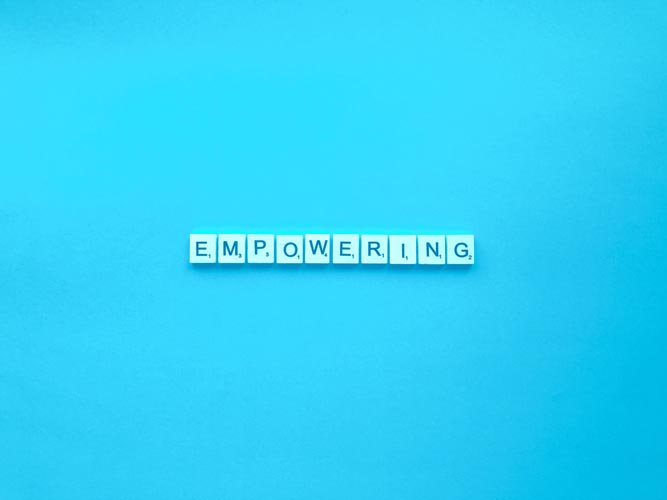
Recovery Pathways: Empowerment
Empowerment in recovery is an approach to treatment that allows and encourages active engagement in the recovery process to regain control of and take ownership in their lives. When treatment teams take a client-centered approach, they may be empowered to express their needs, self-advocate, and follow through on their goals and commitment to recovery. Empowerment of the individual can offer many far-reaching benefits.
Self-Esteem
An empowering approach to recovery can help individuals build self-esteem. Self-esteem is the way an individual thinks, feels, and believes in themselves. Empowered individuals will learn that their opinion carries weight and can affect their treatment and recovery journey. By fostering a sense of empowerment, an individual’s self-perception can shift, revealing strengths otherwise left unexplored. As self-worth grows, so does wellness.
Self-Worth
Self-worth is the belief and recognition that an individual is a valuable person, deserving of love and respect. Empowering an individual in their recovery process can foster a healthy sense of self-worth, specifically when respect and compassion are present in each and every interaction.
Self-Efficacy
Self-efficacy refers to an individual’s belief that they have the ability to succeed in a given situation or challenge. When an individual possesses a sense of empowerment, they can begin to build the confidence necessary to rise to the occasion and face challenges head-on. Small successes can build confidence to face larger obstacles without fear of failure. Self-efficacy also enforces the idea that failure is a vital part of growth.
Self-Advocacy
Often, those seeking recoveries feel disempowered and helpless in their current circumstance. Fostering empowerment can help an individual voice their needs and desires regarding their treatment and recovery. As the confidence to self-advocate in the recovery process grows, the individual may become more comfortable advocating for themselves in other areas of their lives.
Learning Self-Empowerment
Offering choice and empowering the individual to make decisions are wonderful ways to encourage empowerment. Teaching self-empowerment practices can help the individual to internalize the empowerment process.
- Challenge the individual to set short-term goals and take the necessary actions to accomplish those goals.
- Resilience is built by facing small discomforts or challenges that can shift the individual’s perception of difficult tasks and circumstances.
- Boundary setting is another way to build a sense of empowerment. When healthy boundaries are set and respected, an individual can feel secure and empowered to restructure their lives in a way that truly works for them.
Empowerment can be introduced and fostered in recovery. Still, lasting empowerment can only deepen with the nurturing of the relationship to self. Persons in recovery can be taught to recognize their accomplishments and strengths through mindful self-examination practices such as journaling, inventory, and internal dialoguing.
